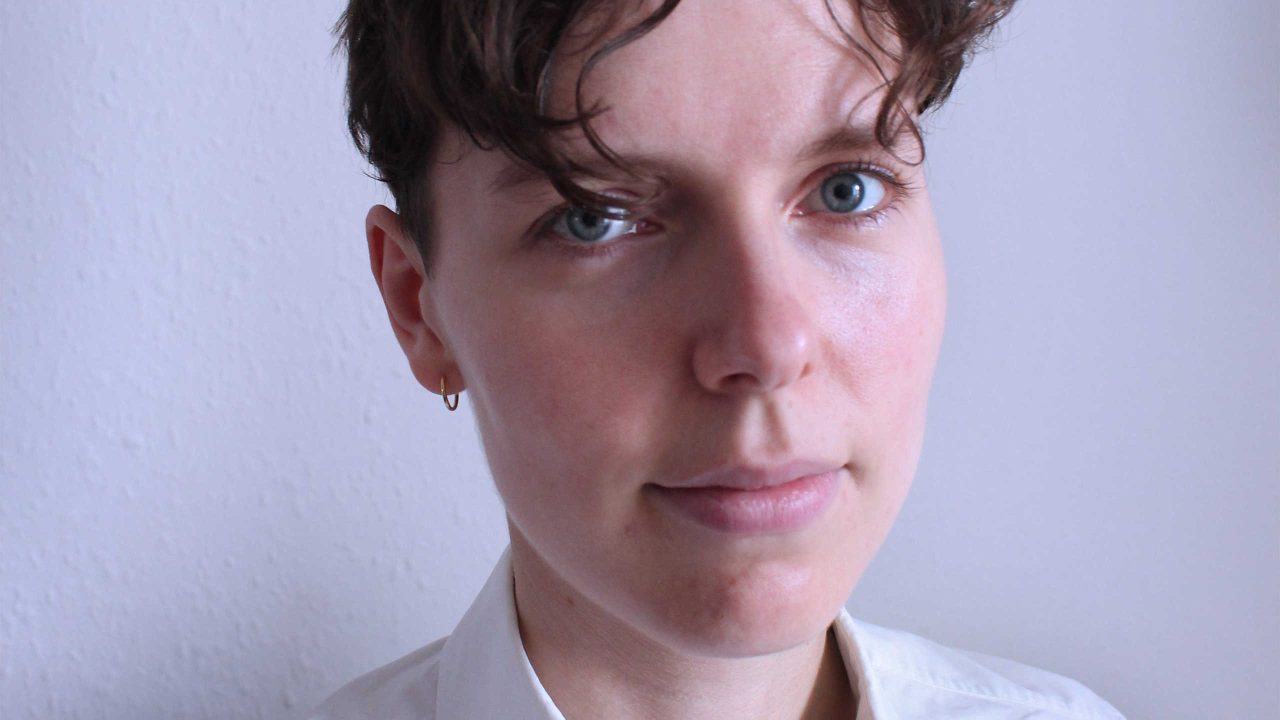We introduce the authors of the 22nd ilb – with questions about writing, reading and unfinished reading. Here you will find out, which queer bookstore in London has a special place in Luka Holmegaard’s heart.
Confession time: Which major classic have you started… but not finished?
I have to admit that sometimes I do drift out of books along the way, but I always hold out an unrealistic hope that I will one day finish them. It somehow feels even more embarrassing when it is a really long book and I started an ambitious reading project. It happened with George Eliot’s »Middlemarch« a couple of years ago, but I’m still hoping to get through!
The age-old question: hardback or paperback? And why?
Paperback, always. I travel with my books a lot and constantly bring too many, and hardbacks are too heavy for that.
If an unpublished book was to be discovered by an author, which author would you want that to be?
I’ve recently read the diaries of Lou Sullivan – he was a gay trans man, an activist, writer and a trans historian living in San Fransisco in the 1970s and 80s. He died young, at 39, from AIDS-related illness. A larger edition of the diaries came out for the first time quite recently. He documented his life in very vivid detail, and also wrote a biography, but he writes a lot about his literary ambitions in his diary, and his prose is so funny, so direct and beautiful and emotionally resonant. I would love it if someone dug up some lost beat trans roadtrip romance novel or something like it by him. That would break my heart, in the best way.
The essential question: bookmarks or dog ears?
Bookmarks. Though I often can’t find one and end up making stacks of books where they hold each other open in different awkward ways, or I use a pen.
Which book is on your nightstand just now?
Just now I have returned to reading a lot of poetry, so I have books of it lying all across my flat. On my nightstand I have Kae Tempest’s »Running Upon The Wires« and the Danish translation of Iman Mohammed’s »Behind the Tree Backs« – both books explore desire and physicality among other things, in very different but brilliant ways.
Which is your favorite book store in the whole world?
»Gay’s the Word« in Bloomsbury, London. There is a big place in my heart for all queer book stores, and this was my first encounter and the one I go back to whenever I’m in London. This is why I want paperbacks – because I always go there and buy seven or eight books and have to bring them all the way back to Copenhagen.
Who was your greatest discovery of the year so far? And why?
I just finished Alison Rumfitt’s »Tell Me I’m Worthless«, and I was completely taken with it. It centres on a haunted house and two characters emerging after having spent a night in it, both believing that the other assaulted them. It is a horror story, very scary, which I am usually way too much of a scaredy-cat for, but it is just so good, such an intelligent offering of thoughts on the world today and both the history and rise of fascism in Europe and the UK. Highly recommend it.
If you were allowed to read only one book for the rest of your life, what would it be?
Maybe it’s cheating, but I would choose a »collected works« then. The collected dramatic works of the Danish author Morti Vizki, probably. It came out in a beautiful edition recently and I have been returning to it often ever since.
Where do you prefer to write, and why?
I often go away to write, in borrowed apartments or on residencies. This summer I was in Amsterdam and stayed in a friend’s flat, writing and taking care of her dog while she and her partner were on holiday. It was really productive, I wrote a lot of poems in those weeks. When I’m in Copenhagen, I write at my desk at home in the morning.
Do you read your own books after they’ve been published?
Only when I give readings, or when I have to look up something in them for a particular reason. I’m too afraid to find mistakes, I think, or things I’d rather have changed. As for my first books that came out years ago, I live in a kind of denial and pretend that there is not actually text inside them, that they would be blank if I opened them up. But people keep telling me that they read and enjoy them, and I guess that is the point – that they are much more for other people than they are for me.
We look forward to welcoming Luka Holmegaard to the international literature festival berlin on September 15. Holmegaards third book, »Look« [2020], a hybrid of essay and novel, was nominated for the literature prize of the Danish daily newspaper »Politiken«. Luka Holmegaard forms part of the events Text and Textile – Literature and Fashion and 3 x 8, where three authors will each read for eight minutes in their languages and provide information about their works.

